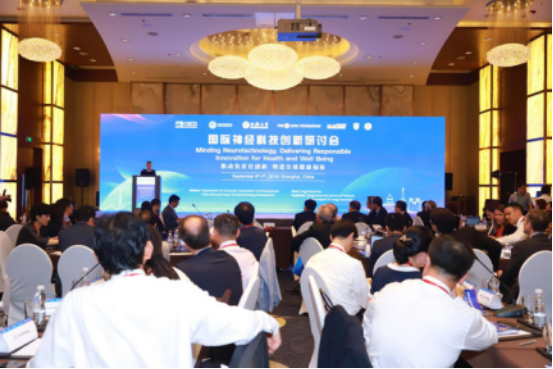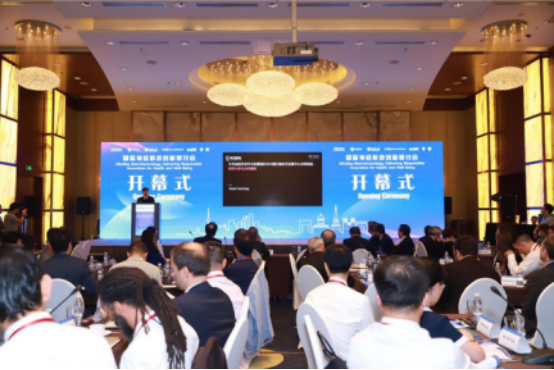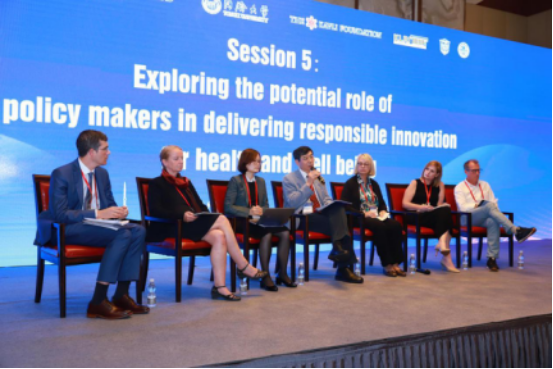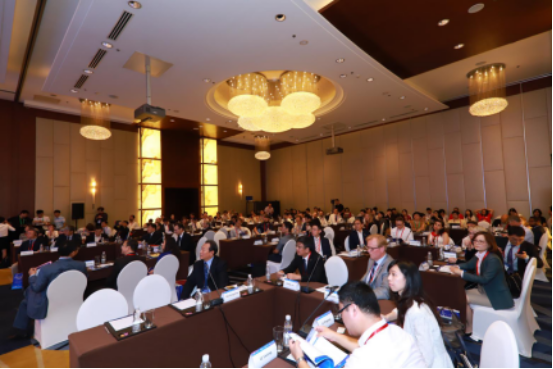On September 6-7, 2018, International Neuroscience Innovation Seminar with the theme "Promoting Responsible Innovation And Improving Health And Well-Being" was held in Shanghai, which was launched by China National Center for Biotechnology Development and Organization for Economic Co-operation and Development (OECD) and sponsored by Tongji University.

As an important expert seminar of OECD on neuroscience and policy research, the meeting is aiming at in-depth discussion on the frontier findings of neuroscience and neuroscience, as well as the important progress of brain science programs in various countries concerned, strengthening international exchanges and cooperation in ethics, law, society, regulation and economy in the field of neuroscience, promoting responsible innovation of neuroscience, and providing references for the development strategy and guiding principles of neuroscience to promote human health and social progress.

Mr. Dominique Guellec, head of of Science, Technology And Policy Department of OECD Council for science, technology and innovation, Zhang Xinmin, director of China Biotechnology Development Center, Fu Guoqing, deputy director of Shanghai Science and Technology Commission, Chen Yihan, vice president of Tongji University delivered the opening speech. More than 100 foreign and Chinese experts from 13 OECD member countries, including deputy director of Australian Queensland Brain Institute, American National Institute of Neurological Diseases and Stroke, Tokyo University of Japan, Korea Brain Institute and many brain science program experts from America, the UK, France, Germany and Canada and other countries attended the meeting, during which the experts conducted in-depth discussions on five topics, including the progress of brain science program, enterprise innovation mode, innovation governance strategy, responsible innovation construction and policy promotion.
Prof. Zheng Jialin, dean of the TUSM, and Li Pingping, director of the Biotechnology Development Center of the Ministry Of Science And Technology Of China presided over the meeting. Pei gang and Pu Muming, Academicians of Chinese Academy of Sciences, Ms. Tan Le, founder and CEO of EMOTIV and Mr. Tom Insel, founder of Mindstrong Health, were invited to give keynote speeches. Academician Pei Gang interpreted the cultural accumulation of China's scientific and technological innovation from the perspective of "people-oriented" of traditional Chinese culture, stressed the importance of social responsibility and sustainability for China's scientific and technological innovation. He said that China will, as always, attach importance to intellectual property rights and international bioethics conventions, promote multi-disciplinary integration and multi-sector participation, establish an efficient innovation mechanism, and promote the breakthroughs in bottlenecks of neuroscience. Academician Pu Muming introduced the important progress of non-human primate model in China, and revealed that the construction technology of transgenic and cloned monkeys` model plays an important role in the research of brain diseases, cancer, immune system or metabolic disorders.
Experts from all over the world have launched a heated discussion around the establishment of a responsible framework for neuroscience innovation and the exploration of innovative governance strategies suitable for the research characteristics of neuroscience, including the emphasis on data privacy and data standards related to brain and cognition, the emphasis on R&D and investors` social responsibility in the process of technological innovation and transformation application, the establishment of open and transparent innovation mechanisms, and the building of public trust.

Prof. Luo Qingming from Huazhong University Of Science And Technology, Prof. Li Luming from Tsinghua University, Prof. Wang Guoyu from Fudan University, Zhang Xian`en, researcher of Institute of Biophysics, Chinese Academy of Sciences, and Tao Xiaodong from iFLYTEK and other Chinese experts attended the meeting. Prof. Wang Guoyu introduced and analyzed the global discussion on the ethics of neuroscience and technology in recent years from the aspects of culture, system, society and individuals, and proposed to build the basic principle framework of global governance, establish the communication platform between government decision-makers, scientists, ethics legal experts and enterprise principals, and jointly formulate and promote the ethical norms from theory to policy In order to promote the healthy development of neuroscience and technology, so that a regulatory system and a code of conduct for responsibility sharing that can adapt to the future development trend can be established.
At the meeting, OECD's science and policy research in the field of life science and biotechnology was introduced into China for the first time. It is hoped that a high-level exchange platform for Chinese scientists be built and a positive role be played in promoting international cooperation in the field of neuroscience and enhancing international influence. China and OECD will continue to strengthen exchanges and cooperation in the future, jointly face the new global situation and challenges in the field of biotechnology, discuss new strategies and mechanisms, promote China's active participation in international innovation and technical cooperation, and continuously contribute China's wisdom and strength to the development of global biotechnology.

